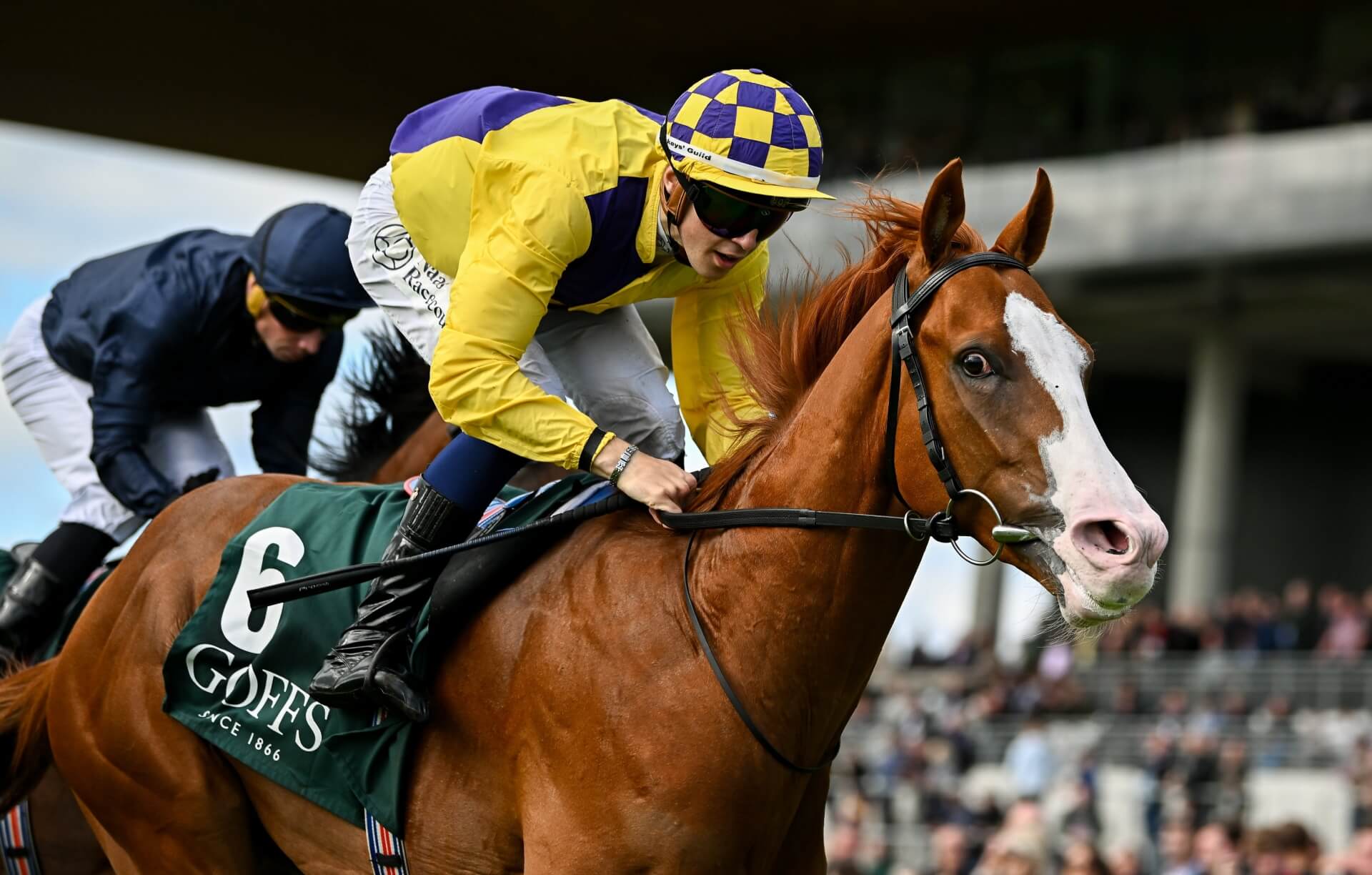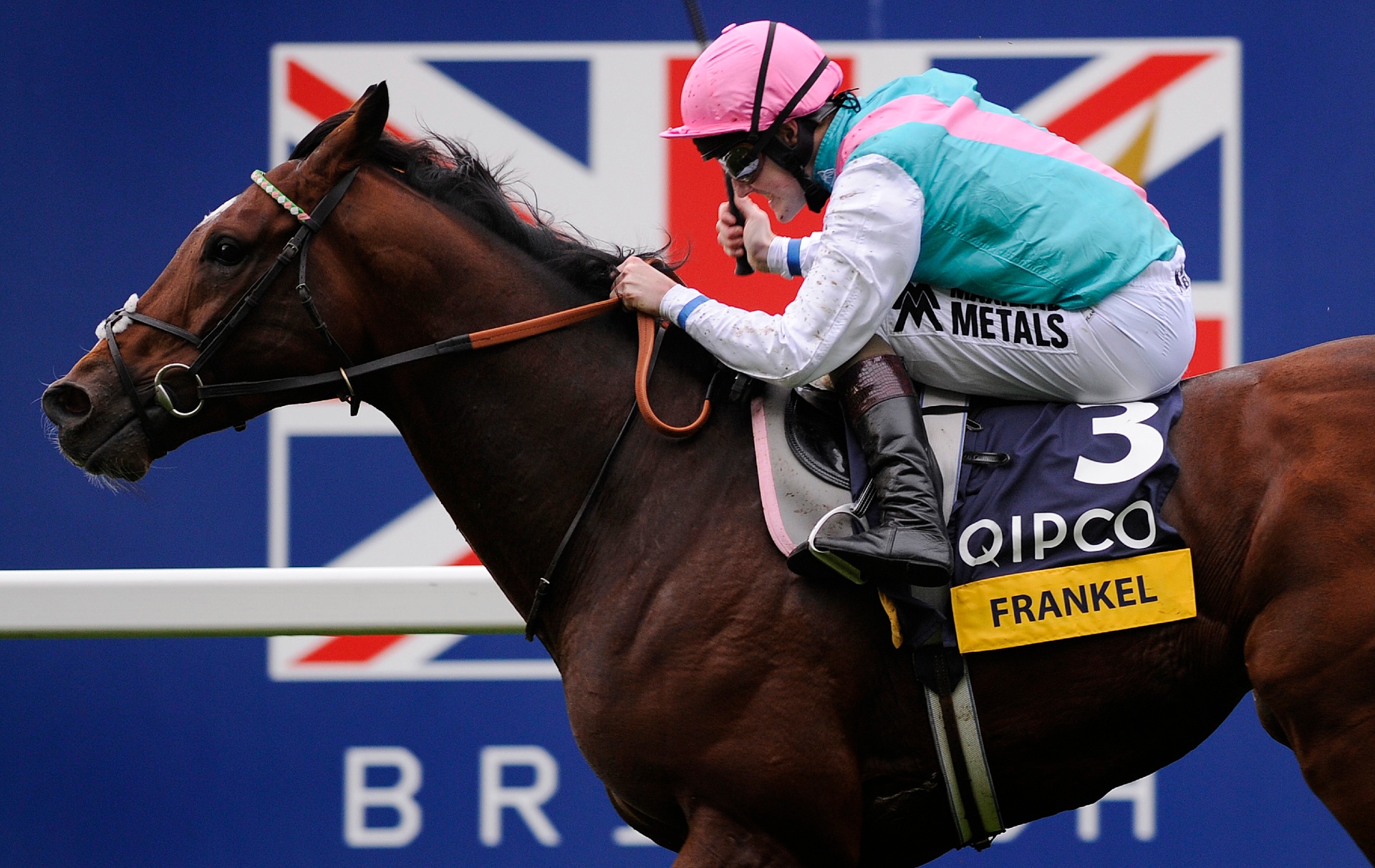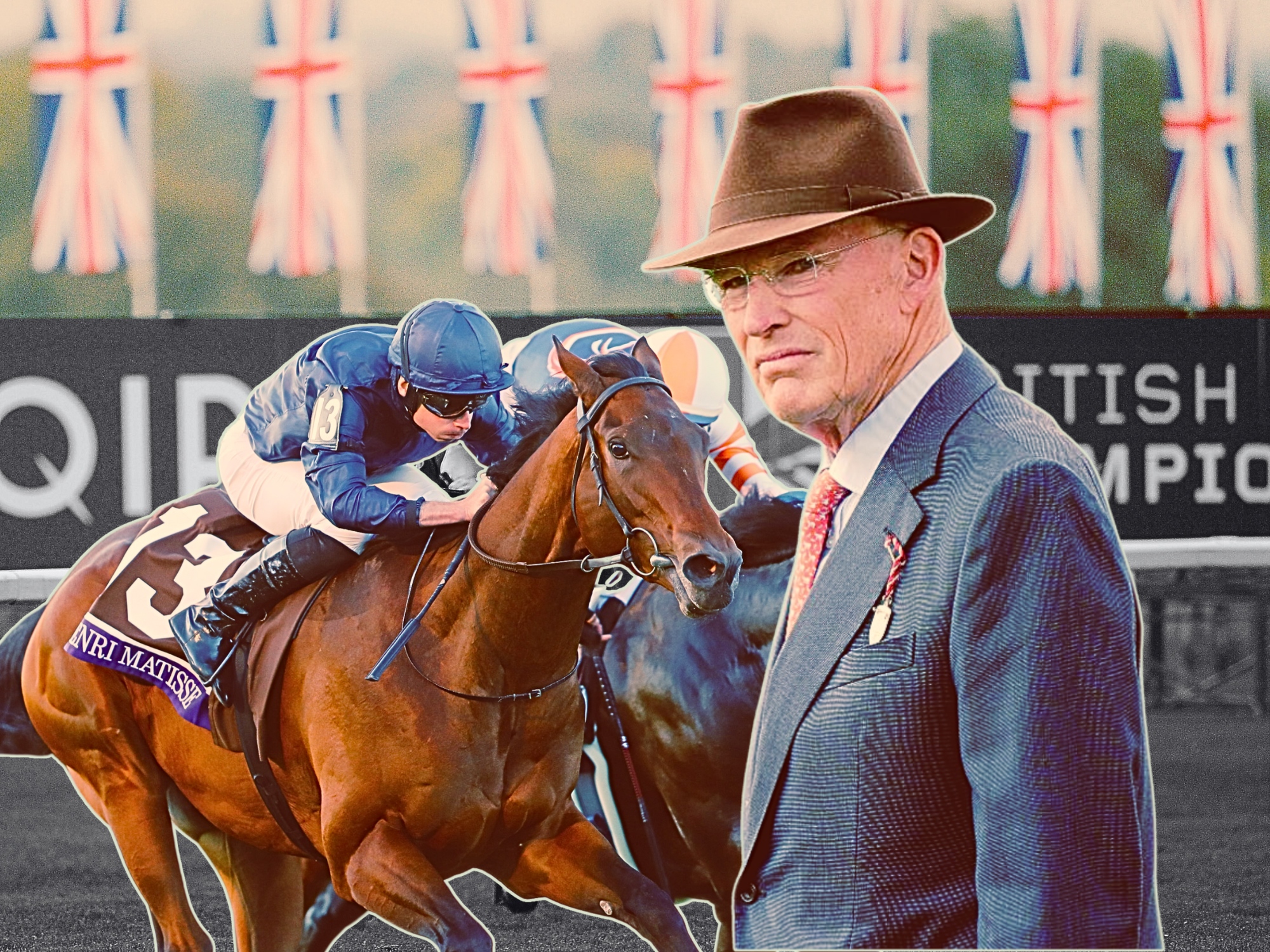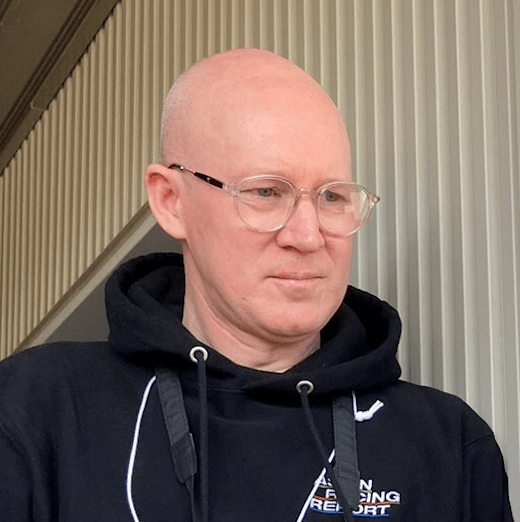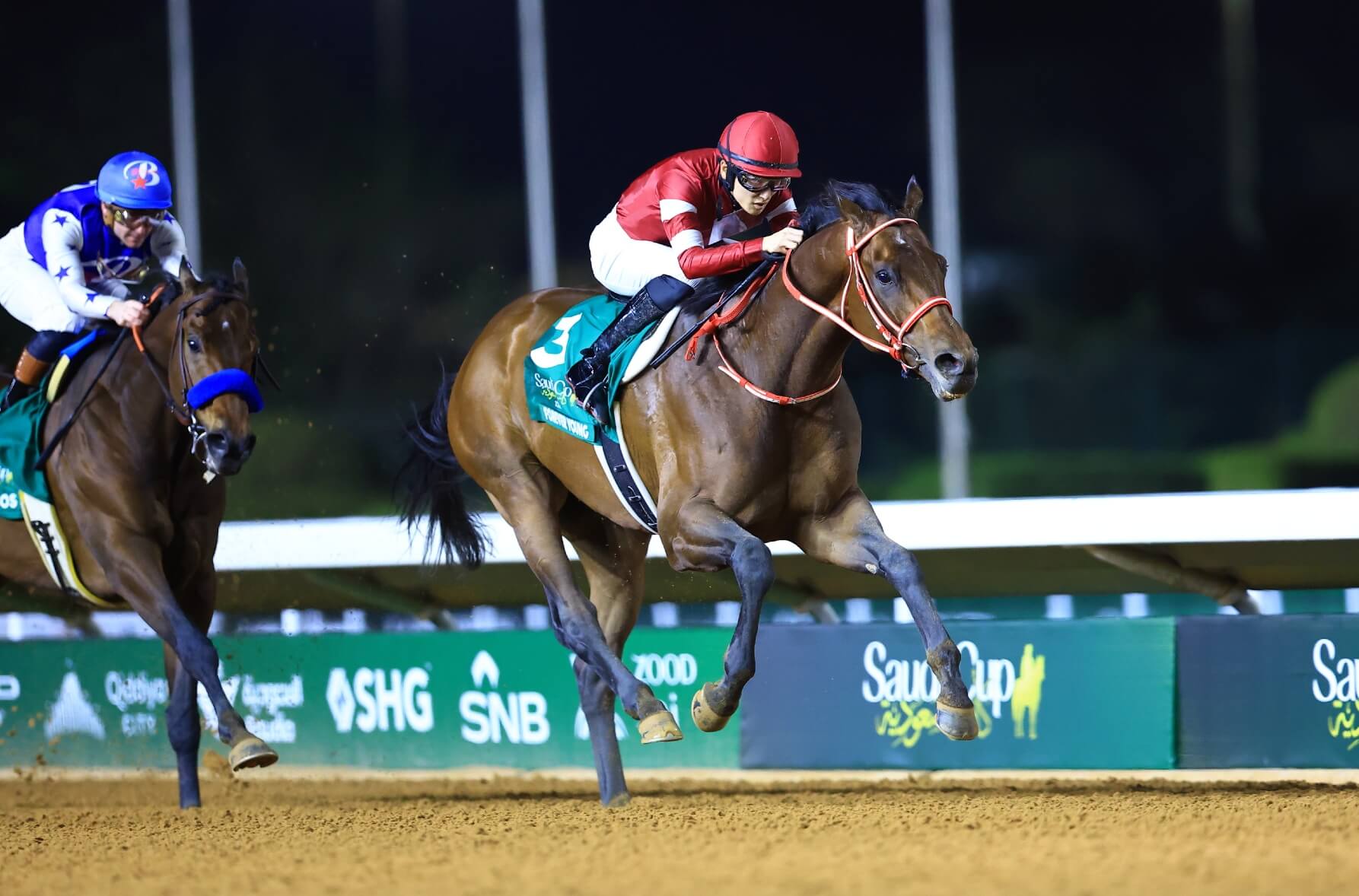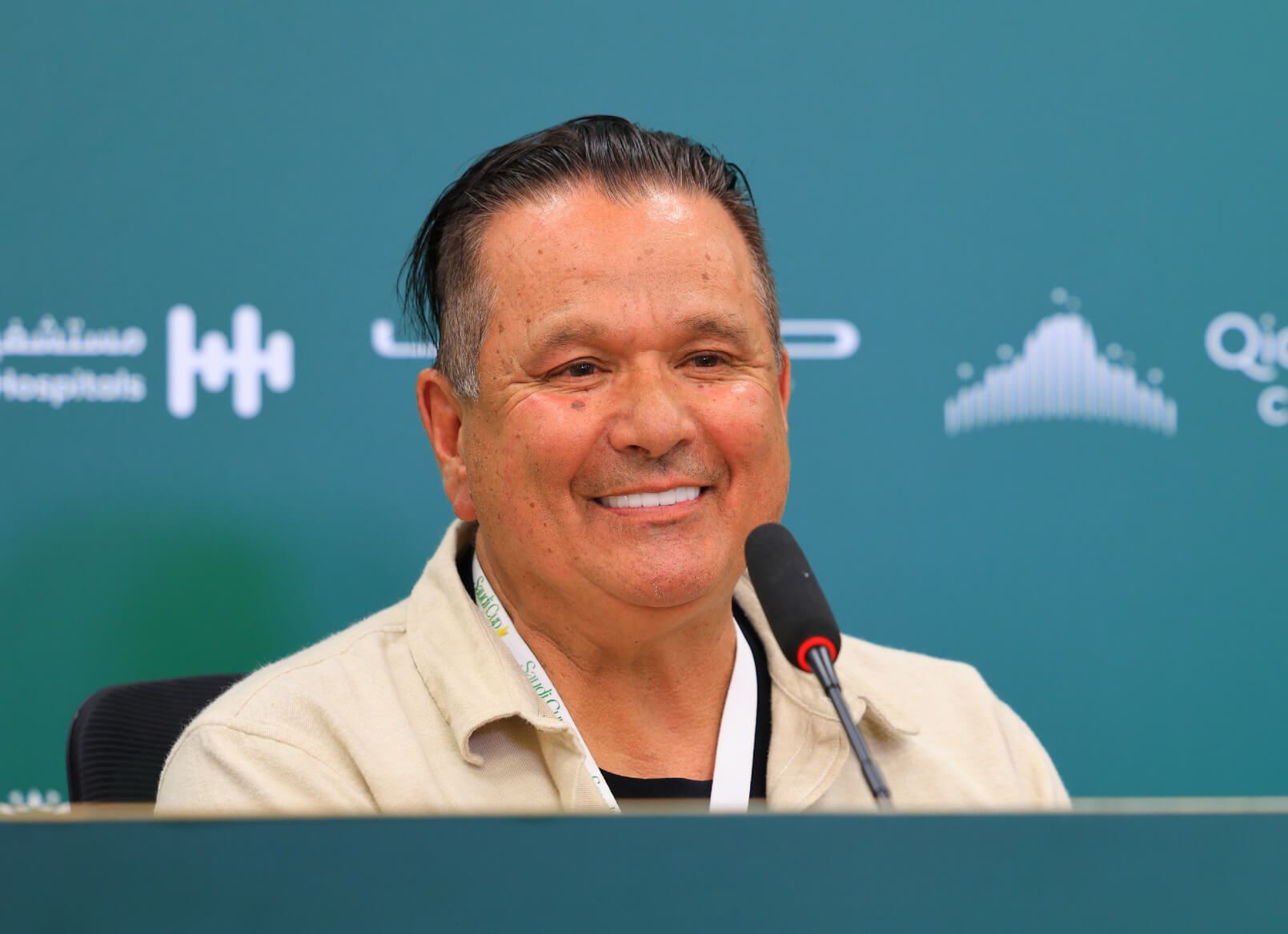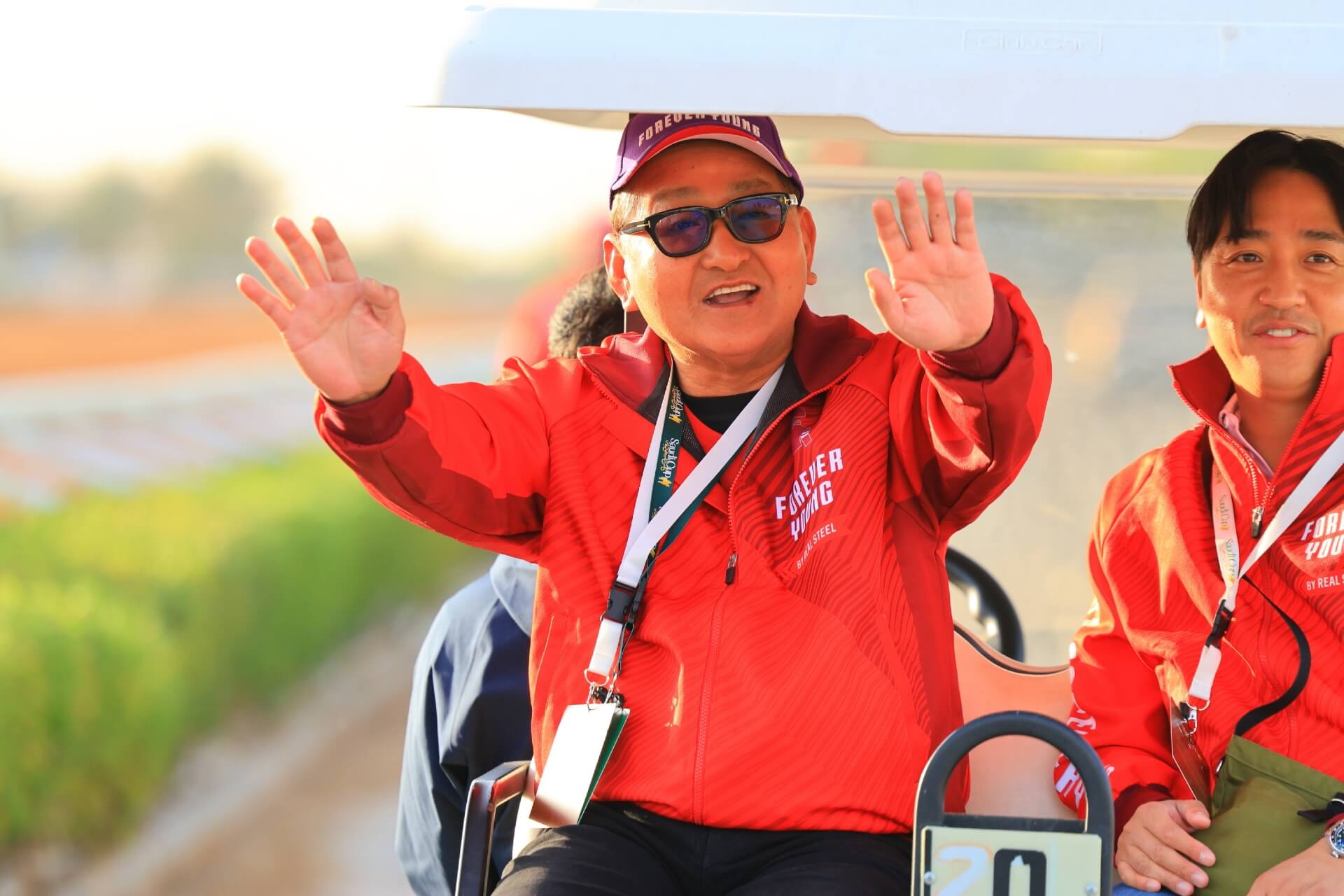Frankel’s “Most Amazing Guineas” And The Two-Plan Approach
Michael Hills rode Frankel’s ‘pacemaker’ in the great colt’s incredible 2,000 Guineas win 14 years ago, and he along with another beaten rider Luke Morris recall the race as they saw it.
FRANKEL’S 2,000 GUINEAS is one of the most iconic races of this century. It was a performance that surpassed any imaginable hype, such was the absolute dominance of the great colt over his classic rivals.
The Juddmonte homebred raced for three seasons and was a champion in each, winning 14 of 14, 10 at Group 1 level; from seven furlongs to a mile and a quarter, on quick ground and soft; straight course, left-handed, right-handed; ranking among the greatest champions of all-time. But his Guineas was something straight out of sporting legend.
Tom Queally was the jockey blessed with harnessing – or trying to manage – owner Khalid Abdullah’s incredible galloper, and on that day, he found himself in front throughout: 15 lengths ahead approaching ‘the bushes’ with his rivals trying to reel back some of his unexpectedly large advantage. In the end, the Sir Henry Cecil-trained Frankel won by six lengths. It was astonishing. You just don’t see things like that too often in an English 2,000 Guineas: once in a lifetime, perhaps twice if you live long enough and the stars align.
But what of the jockeys who chased and followed home the colt that would go on to be, by many good judges’ assertions, the best they had ever seen? Among the other 12 riders involved in the jaw-dropping race, Luke Morris was having his first classic ride and guided the 200-1 longshot Slim Shadey to fourth; and Michael Hills was part of a winning plan on Rerouted, wearing the same Abdullah silks and assumed by most to be Frankel’s pacemaker.
“There were two plans,” Hills tells Idol Horse. “I went up and saw Henry (Cecil) and we had a long discussion about it, but then we got the draws and I was drawn 13 and he was drawn one, so we had the whole field in-between us.
“So, the first plan was that I’d jump off with the intent to make the running and be the pacemaker, but then if I saw Tom on Frankel going forward like he’s going to make the running, I was to slip in behind him and then gradually take the field back with me, so that he was left on his own.”
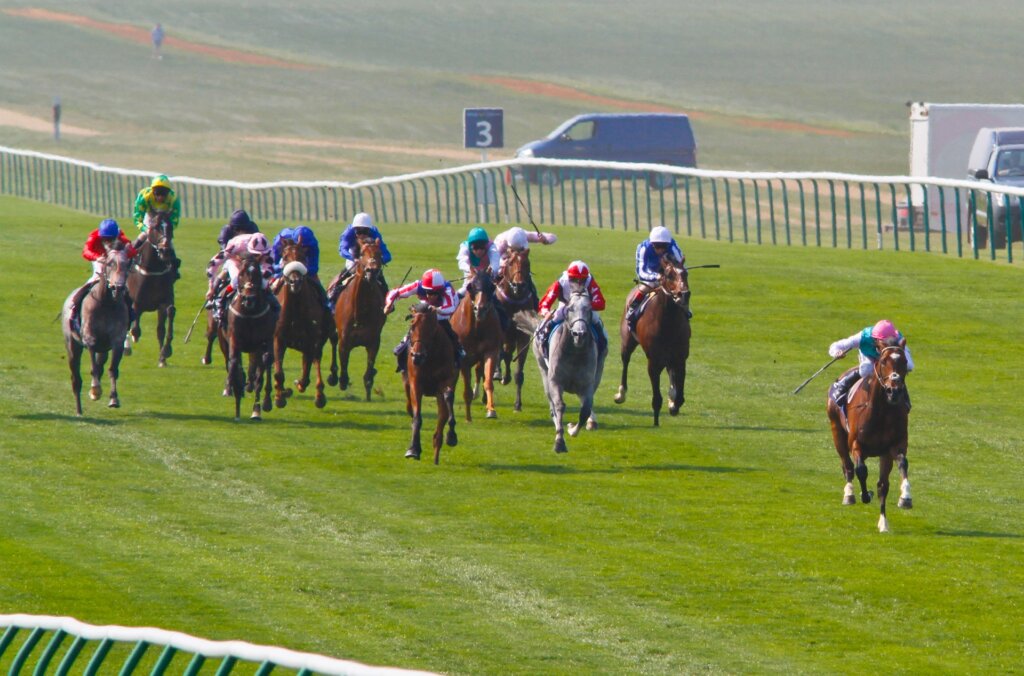
At that stage of his career, Frankel was strong-willed, free-running and competitive, and the fear was that he would get lit up and burn himself out on the Rowley Mile’s wide, straight course.
“When he had company around him, they had to mind him. He’d do too much, that’s what they were afraid of, and my job was to bring the field gradually back off him, so that he was on the lead on his own.”
Frankel took the lead from the break and Hills went into ‘Plan B’ mode.
“It worked to a peach, but of course the jockeys behind weren’t stupid, and suddenly they went, ‘enough of this’, and they came round me,” he continues. “But it left Tom and him alone for the first two furlongs of the race so that he could drop the bridle a bit. That was the plan … but really we didn’t need any plans with a horse like that.”
Morris’s mount Slim Shadey was one of those that broke sharply and he raced at the front of the chasing pack through the first furlong and a half as the Frankel plan played out.
“Going through the race beforehand I remember looking and seeing that Frankel had Rerouted as a pacemaker, and everyone was sort of expecting him to go haring off and Frankel to be dropped in,” he says.
“My horse jumped quite well and I’ve looked across and seen the Abdullah silks haring off and I couldn’t believe it was Frankel. He led us at a solid gallop.”
Morris was pleased to be having his first ride in a classic even if it was on a big outsider, and with Frankel’s perfect juvenile career, and a demolition job of a prep run in the Greenham Stakes all fresh in the mind, his expectations were tempered.
“I was on a horse that was a big price and I was very much riding him for a place, and because Frankel went so quick, and some horses tried to lay up, it played to my horse’s strengths,” Morris continues.
“We ended up sneaking fourth by riding that way. But I think if anyone else had engaged with Frankel, he would have just gone and killed them off, which he did with the likes of Casamento who tried to stretch on with him.”
Frankie Dettori on Casamento was one of those who recognised the need to get closer to Frankel. The Godolphin colt advanced to a clear second in pursuit, but he never got close. Frankel just kept lengthening the distance until he was cruising along, a wide margin ahead with half a mile to run, as Casamento came under the pump.
A quarter of a mile out, Frankel was 15 lengths in front as Dubawi Gold tried to close from the back and went to second place under Hughes.
“He was just a phenomenal horse. I’ve never really seen a race go like that, and a horse to set that pace and then go again like he did at ‘the bushes,’ which showed the quality and the level of the horse he was,” Morris says.
“He could win doing whatever: not many horses can make moves in races like he did in the Guineas and again in the St James’s Palace at Ascot the time after. Horses just don’t do that and win, they get found out. But he was rock solid and very much unbeatable.”
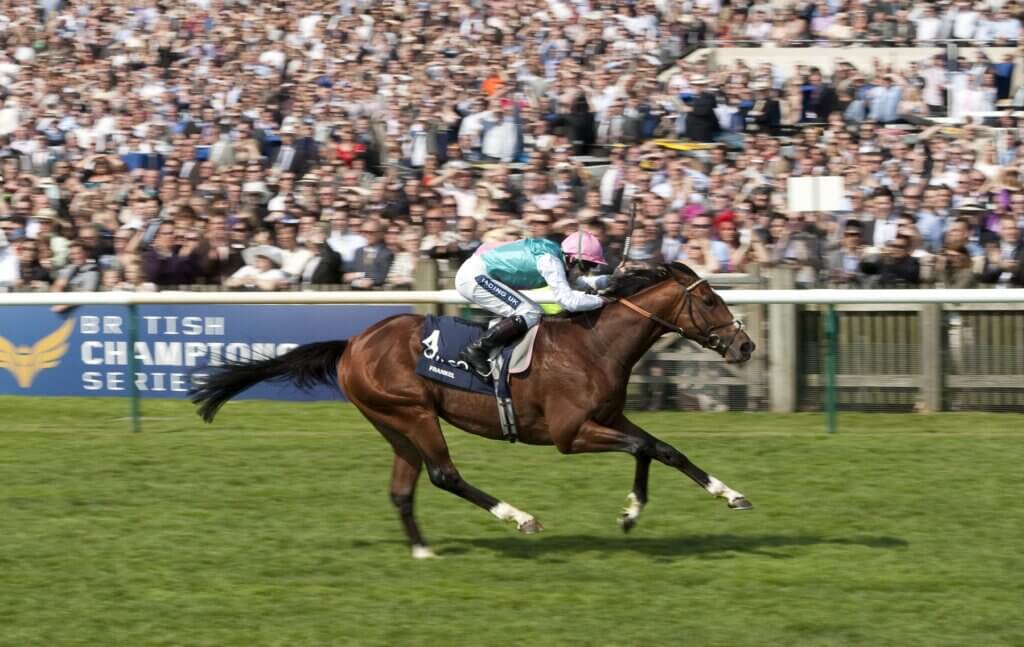
The Newmarket crowd was awestruck that day. Halfway through the race, watchers were gasping, questioning what Queally was doing, wondering how in the world the horse would last home. But he did.
“He went quick and they’ve sort of gone after him,” says Hills, “Then Tom filled him up going past ‘the bushes’ and asked him again … well, he just absolutely killed the race and he was so far clear that he only had to canter home.
“Tom, I think, wasn’t quite sure if he could settle him. He obviously did later in his career but at that stage, I mean, he used to just say to me, ‘Mike, make sure it’s strong,’ as in I’d prefer a stronger pace so I can back off you, but I don’t want you to be going slow in front. Tom was worried he couldn’t hold him.”
Hills had been 17 lengths last of three when Frankel obliterated his rivals second-up as a juvenile at Doncaster; then 10 lengths third when, as he says, “He annihilated us in the Greenham” before finishing eighth on Rerouted in the Guineas.
He and Rerouted fulfilled pacemaking duties the time after at Royal Ascot when Frankel made a shock move that took everyone by surprise and almost brought his only career loss.
“In the St James’s Palace Stakes, I couldn’t believe he came to me that early because I was full pelt, full out down that back straight at Ascot and I looked at my shoulder and I thought, ‘it’s him’. I didn’t want him running too wide on the turn so I let him have the lead, so he took the lead into the straight, but then he kicked off the turn and when you watch that, he was on vapours the last bit.
“When you go back and look at the Guineas, it wasn’t a very good race in terms of the form, but at the time we didn’t know that, but the way he did it was amazing.”
True. In saying that, though, it should be remembered that the second and fourth both went on to win Group 2 races and Dubawi Gold was a close-up fourth in a G1 Hong Kong Mile, so they weren’t mugs either, they had talent. And, as Hills points out, the form throughout Frankel’s three seasons stands up all day long.
“He went through his whole career without getting beat, so nothing in his era was anywhere near as good as him,” he adds. “The times show up, he was a phenomenal horse and probably the best horse I ever rode against. It was the most amazing 2,000 Guineas I’ve ever seen.” ∎

